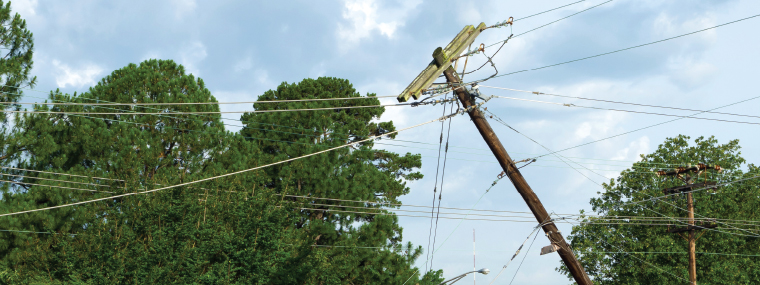
Supplemental First Dollar Windstorm Insurance: Help When Your Community Needs It Most!
by Evan M. Glassman / Published March 2015
When it comes to protecting an association’s property and unit owners from special assessments, there is a very large disconnect between the actual economic needs for recovery after a hurricane versus what is covered by traditional property insurance policies. This is a result of:
- Large deductibles, generally two to five percent of the total value insured, which can amount to millions of dollars for larger associations.
- The items most likely to trigger loss are, in many cases, uninsurable and not even included in the accumulation of the insured’s deductible liability. These items can include landscaping, outdoor property, seawalls, docks, piers, roads, and lake erosion.
- Exclusions contained in the policy. Many community association insurance programs don’t cover damage from wind-driven rain, weathering and deterioration (painting and sealing), or ordinance and law (increased costs to comply with more recent building codes).
- The traditional claims process itself, which can be contentious, and potentially take many months to years to be reimbursed for what is ultimately covered. Further, the burden of demonstrating the loss is on the policyholder.
As a result of the above, most community associations face the exposure of an immediate, unbudgeted need for hundreds of thousands to potentially millions of dollars to recover from the next hurricane. Historically, this exposure is generally funded by special assessments or loans to be repaid by future, increased regular assessments. While some of the best prepared associations have accumulated a storm/deductible fund, there are also those who are unable to qualify for emergency loans, and the special assessment may be a tremendous burden for the unit owners with some not being able to pay.
There is now a supplemental windstorm insurance product, Hurricane PM, that is available to many community associations that is designed to address this tremendous, off-balance sheet liability facing property owners in hurricane-exposed regions. One of the marks of a good supplemental in-surance product is to offer a straightforward and streamlined claims process that can lead to claims payment quickly following a hurricane. Furthermore, a good supplemental insurance should provide coverage for most types of losses, including:
- Damage to covered property below primary carrier deductibles
- Coverage for items that are difficult to impossible to insure, such as landscaping, outdoor property, beach/lake erosion, seawalls, docks, and roads
- Items excluded or sublimited in primary policies
- Storm surge and flood damage
- Extra or extraordinary expenses to prepare for, or recover from the hurricane.
The aforementioned coverage becomes possible by utilizing a slightly different coverage trigger than traditional insurance. By utilizing what is called a parametric trigger, the wind speed is recorded in your area by a special network of almost 100 hurricane-hardened, wind monitoring stations that are strategically positioned in hurricane-exposed areas from Texas through the Northeast with more than 40 in Florida. If your association is close to one or more of these stations, you are eligible for coverage. Claims payment is triggered by whatever wind speed you preselect being met or exceeded. The wind speed is certified by RMS, one of the world’s leading catastrophe risk modeling com-panies. Once coverage is triggered, just about any economic loss that is suffered is then eligible for coverage up to the limit purchased.
While Floridians have enjoyed a very fortunate run for more than nine years without a hurricane making landfall, statistically speaking Florida is overdue. It is a matter of when, not if, the next one occurs. There is now available to many an insurance product designed to protect against the most likely of losses. Will your community be ready to protect against these losses?


